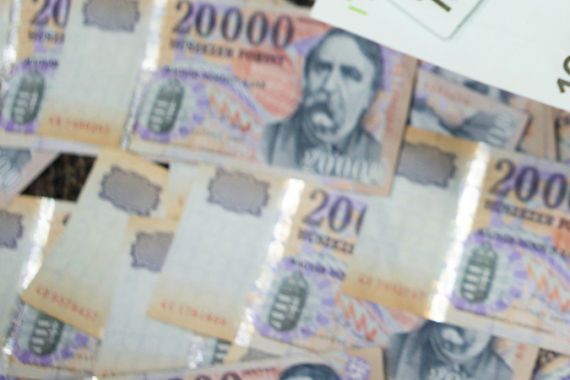Credit agency lowers Hungarian debt rating
High debt cited for move that the government has called part of a series of “financial attacks” against the country.

 |
| Orban, left, has already asked for ‘precautionary’ help for Hungary from the EU and IMF [Reuters] |
Credit agency Moody’s has cut Hungary’s debt rating to below investment-grade, citing high debt levels and weak growth prospects.
Moody’s also cited uncertainty about Budapest’s ability to meet fiscal goals as justification for cutting the debt one notch – from BAA3 to BA1.
Keep reading
list of 4 itemsEcuador weighs security, international arbitration in latest referendum
‘Triple spending’: Zimbabweans bear cost of changing to new ZiG currency
Boeing hit with 32 whistleblower claims, as dead worker’s case reviewed
The government said Friday’s move was part of a series of “financial attacks against the country”.
Last week, the Hungarian government announced it would seek a financial safety net from the European Union and the International Monetary Fund, but no new loans.
Reaction to the Hungarian rating cut has led to other Central and Eastern European currencies to sell at a lower rate, adding to a wider risk aversion as the eurozone debt crisis is threatening to spill onto the region’s banks.
Europe’s financial headache has increased further as Italy has been forced to pay record interest rates in a $13bn auction of treasury bills.
Surge in bond yields
The rate of interest for the new debts due to be repaid in six months was 6.504 per cent, compared with 3.535 per cent in the last comparable sale on October 26.
The rate for a two-year borrowing was 7.814 per cent, up from 4.628 per cent last time, when Italy had to pay in the previous auction and represented a new high since the creation of the euro in 1999.
The auction results are another sign that the country’s new technocratic government faces a big battle to convince that it has a strategy to get a grip on the country’s massive debts.
The Bank of Italy stressed that demand for the bonds had been high, outstripping supply by 50 per cent.
The FTSE MIB in Milan dropped one per cent following the auction to take it down 1.9 per cent on the day.
European markets have reacted cautiously to Italy’s high yield payout, with stocks falling down early on on Friday.
The markets lost ground for the ninth time in 10 sessions and set to post their biggest weekly loss in two months, dragged by deepening worries over the health of the global economy and the euro zone debt crisis.
Euro’s decline
The euro fell to a six-week low amid renewed pressures on eurozone bond markets.
While the euro sunk below 1.33 against the dollar for the first time since early October, yields on Italian two-year and five-year government bonds surged to their highest levels since launch of the euro 13 years ago.
By early afternoon trading, the euro was down 0.8 per cent at 1.3233 dollars.
US stock futures slid again on Friday.
Less than one hour before the opening bell, Dow Jones industrial average futures fell 66 points, or 0.57 per cent, to 11,168.
The Dow has already lost 4.6 per cent this week, putting the average on track for its worst week since September.
S&P 500 index futures are down seven, or 0.6 per cent, to 1,152. Nasdaq 100 futures are down 13, or 0.6 per cent, to 2,148.